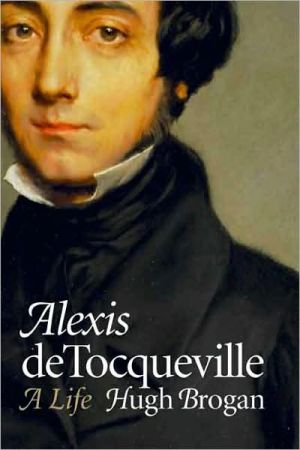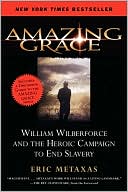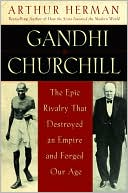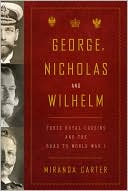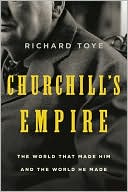Alexis de Tocqueville: A Life
Alexis de Tocqueville was one of the greatest political thinkers of all time. Born a French aristocrat, he lost nearly his entire family in the Reign of Terror, and he spent most of his adult life struggling for liberty under the unsuccessful regimes of nineteenth-century France. \ At age twenty-five he travelled to America and encountered democracy for the first time. This firsthand experience contributed to his incisive writing on liberty and democracy. The ancien régime launched...
Search in google:
Alexis de Tocqueville was one of the greatest political thinkers of all time. Born a French aristocrat, he lost nearly his entire family in the Reign of Terror, and he spent most of his adult life struggling for liberty under the unsuccessful regimes of nineteenth-century France. At age twenty-five he travelled to America and encountered democracy for the first time. This firsthand experience contributed to his incisive writing on liberty and democracy. The ancien régime launched the scholarly study of the French Revolution, and Democracy in America remains the best book ever written by a European about the United States. This is a brilliant account of his life. The Washington Post - Joseph J. Ellis Hugh Brogan's Alexis de Tocqueville is a magisterial account, 50 years in the making, that follows the precocious French nobleman through the swirling history of post-revolutionary France, the rutted roads of backwoods America, the bewildering comings and goings of different royalist and republican French governments, all the way to Tocqueville's somewhat controversial final hours in 1859, when the question of his religious convictions at the end remains blurry. If this is not the definitive life, it is only because no such thing is possible. It is surely the authoritative life for our time.
ALEXIS DE TOCQUEVILLE\ A LIFE \ \ By HUGH BROGAN \ Yale University Press\ Copyright © 2006 Hugh Brogan\ All right reserved.\ ISBN: 978-0-300-10803-3 \ \ \ \ Chapter One\ NOBLESSE 1773-1794 \ Titles count for little with the French, and mere wealth is not respected. Blood they understand. HILAIRE BELLOC\ IT IS NO PARADOX to say that the greatest event of Tocqueville 's life occurred before he was born: the French Revolution, which decisively influenced almost everything that ever happened to him.\ But behind and beyond that transforming convulsion there lay another France - the France for which we still use the revolutionary term, l'ancien régime, or old order. This played an equally important part in shaping him. Tocqueville's families, paternal and maternal, nobles of the sword and the robe, were distinguished in that lost world, and he took a proper pride in their achievements, however remote. Thus, late in life, he was enchanted to learn for certain that one of his ancestors had sailed with Normandy's greatest hero, 'William Bastard de graunt vigour', to the conquest of England in 1066. He had been almost equally delighted some years earlier when his wife discovered a mass of ancient parchment in a worm-eaten cupboard which seemed to show that the Clérels (theoriginal family name) had been noble since at least 1425. Yet nothing could more precisely illustrate one of the main changes brought about in France by the Revolution than the fate of those documents; for what Marie de Tocqueville had almost certainly found was the once-cherished dossier of proofs of the family's ancient nobility, to be used if their status was ever challenged. In the new France such muniments were of little more than antiquarian interest.\ Nevertheless, the Clérels were indeed an ancient noble family, Norman of the Normans, even before they acquired the manor-house of Tocqueville in the mid seventeenth century. It lies in the Cotentin, a few miles east of Cherbourg, near the sea. In the middle of the eighteenth century it was occupied by the second Comte de Tocqueville, Bernard (1730-76), and his wife Catherine, the grandparents of Alexis. His story begins with them, for some of their traits, both social and individual, were to mark their descendants for the next hundred years.\ Bernard was a soldier, and took his profession seriously - he had a portable military library of fifty-one volumes, ranging from the 1741 edition of the Code militaire to a work on La Nouvelle Artillerie, published four years before his death. He had an exemplary career and was made a Chevalier of the military order of Saint-Louis. He was a younger son, but inherited the house and estates of Tocqueville when his brother, also a soldier, was killed in the Seven Years War and his nephew died at school in a playground accident. Bernard had never expected to be rich enough to marry, but that now became his duty if the family were not to die out. A comrade told him of Comte Étienne de Damas-Crux, who had several unmarried sisters. This was promising: the Damas were a numerous family which combined great landed wealth with Court favour and a firm commitment, like that of the Tocquevilles, to the duty and privilege of bearing arms for the King. Bernard was found acceptable, and was paired off with Catherine- Antoinette de Damas-Crux. His family had a record of making 'good' marriages, but this was better than usual: it marked the beginning of a great rise in the world. It is to be presumed that Catherine 's dowry helped to finance Bernard's decision to rebuild his manor-house, enlarging it and giving it an elegant modern façade: the pediment of the garden-front was emblazoned with both the Tocqueville and the Damas-Crux coats-of-arms. The manoir, from now on, was unequivocally a château.\ The alliance with the Damas was to be of great importance to the next two generations of Tocquevilles, for good and ill, but not exactly as was expected. Great change was at hand, although its coming was probably not very visible from the Cotentin. There, life for the provincial noblesse went on in the manner that had long since become traditional. The Tocquevilles were not among the families which in the previous century had heeded the Sun King's invitation and gone to Versailles, there (after showing the necessary proofs) to become noblesse de Cour and join the perpetual competition for perquisites by which Louis XIV kept his grands docile and politically impotent. Like their neighbours they continued to be what they had always been - rustic Norman gentry, who spent their time farming or squeezing money out of the peasantry when they were not fighting in the King's wars. The Tocquevilles had long been in the middle rank of Norman noblesse - nobles de race, patrons of churches (gentilshommes seigneurs de paroisse) as well as fiefholders. They enjoyed the usual privileges of their order, among which were exemption from the taille (general tax) and the gabelle (salt tax), and the right to bypass the lower courts in any cases which involved them, going instead, in the first instance, to the higher royal courts. Only nobles were allowed to wear swords in public and to put battlements on their houses. They took precedence of lesser beings in public gatherings, and had a specially lofty pew in each parish church to which they had the presentation - Alexis eventually inherited the pew at Tocqueville, one of the few privileges to survive the Revolution. Although the soldierly tradition of the Tocquevilles forbade it, they could, as nobles, have claimed exemption (except in great emergencies) from all forms, physical or financial, of military service. Above all, they had various 'feudal dues' enabling them to tax, as it were, the land and business of their neighbours: dues which, in the days of serfdom, may possibly have had some functional justification, but which by the eighteenth century had become merely sources of income, as Alexis de Tocqueville, taking the peasants' side, indignantly demonstrated in his Ancien Régime. Some of their other privileges were surely more trouble than they were worth. They had the sole right to hunt and to trample down the peasants' crops in pursuit of their quarry. And in one of the three round towers of Tocqueville Comte Bernard kept 3,000 pigeons, another standing cause of peasant resentment, since the birds despoiled the harvest (in an epoch when famines were all too frequent). It is hard to see the point of this abuse, even if Bernard was fond of pigeon pie, unless it was intended as a ruthless display of his power and standing. Otherwise he, like his forebears, seems to have been a responsible landlord to the peasantry - 'We have lived among them as protectors and friends for centuries,' said his grandson, not quite credibly. But the Tocquevilles did not mingle with their inferiors. There was no need. Social and intellectual life in the French provinces was remarkably vigorous and varied in the eighteenth century. Every local capital seems to have aspired to be a little Paris: Valognes, the capital of the Cotentin, was proud to be known as a little Versailles. The Tocquevilles had a town-house there to which they went every winter, to escape the mud of their estate and the chill of their damp chateau and to enjoy the company of their equals.\ Forty years later, when Alexis de Tocqueville was born, this noble way of life had largely been destroyed. But it still had enough vitality to leave a permanent mark on his attitudes, particularly towards his countrymen. 'When I talk to a gentilhomme, though we have not two ideas in common, though all his opinions, wishes, and thoughts are opposed to mine, yet I feel at once that we belong to the same family, that we speak the same language, that we understand one another. I may like a bourgeois better, but he is a stranger.' First and foremost he was a noble, to the end of his days, and cannot be understood unless this is recognized.\ Tocqueville was never able entirely to shake off nostalgia for this lost world. In his first publication on the ancien régime he wrote:\ Anyone who wished to paint an accurate picture of the order of the noblesse would have to resort to many and various classifications, distinguishing nobles of the sword from nobles of the robe, nobles of the Court from nobles of the country, the most ancient families from the most recent; he would discover in this small society as many nuances and classes as in the greater society of which it was only a part. However, he would also have found that a certain homogeneous spirit guided the whole body; as a whole it obeyed certain fixed rules, governed itself according to certain invariable customs, and all its members had certain ideas in common.\ But by the mid eighteenth century the bonds of caste were stretched to breaking-point. By immemorial tradition the people of the kingdom of France were divided into three estates, but the division no longer made sense. The position of the Church (the First Estate) was coming under ferocious attack from the philosophers of the Enlightenment. In a nation rapidly growing from 20 million towards 30 million the privileges of a few hundred thousand nobles (the Second Estate) were more and more anomalous. And as Tocqueville hints, the noblesse was far from united. The greatest nobles - the richest, best educated, best connected - took advantage of France's material progress to further their own interests; they plunged into high finance and industrial investment, and eagerly married into rich roturier (commoner, Third Estate) families, which in their turn were easily ennobled; they were charmed and excited by the limitless possibilities opening to European civilization, and began to regard the prospect of social and political reform with eagerness, not apprehension: they were even prepared, in principle, to sacrifice their privileges if it meant that they could merge with the far more numerous leaders of the Third Estate in a new governing class of notables, an ambition which was largely to be achieved, thanks to the Revolution. But at the other end of their order were the rural squireens, the hobereaux, families with nothing to live on but their feudal dues and the produce of their ill-managed lands, often no larger than peasant smallholdings: ill-educated, provincial, struggling, often unsuccessfully, to cling to their noble status. They had less and less in common with the polished ladies and gentlemen of the Parisian salons.\ If there was ever any doubt as to which end of the scale the Tocquevilles would move towards, the Damas marriage settled it.\ Not that Bernard and Catherine were particularly worldly, in the English sense of the word. Besides the military library the chateau contained eighty-four volumes of religious devotion. The Tocqueville family's way of life was permeated, and in their eyes justified, by Catholicism. They were devout in the Jesuit, rather than the Jansenist tradition (although, in the next century, Alexis de Tocqueville deeply admired the greatest Jansenist writer, Blaise Pascal). The quality of their religion emerges in Catherine 's account of the birth of her son, which took place at her mother's family home in 1772.\ Hardly had this child been born [she writes] than my husband offered him to God and consecrated him to Him. He [her husband] was present at the christening ceremony, pénétré with faith and religion. Several persons have told me that nothing in the world could be more touching or more edifying than the sight of him at that moment. When he came back to my side he told me that he had been extremely moved, and that he had asked God with all his heart to remove the child from the world if he should prove to be un mauvais sujet [black sheep].... He often said to me that it was necessary to offer this little treasure to God every day, and to be ready to sacrifice it to Him, because it had belonged to Him before it was ours.\ So pious a man could not be a follower of the philosophes; but he had picked up some of Rousseau's ideas about the rearing of children (he owned several books on education). He thought he could make his little boy hardy by dressing him in nothing but a linen shirt, whatever the weather, without shoes or stockings. Before long the child was seriously ill, but before he was quite at the point of death the father himself died, urging his son at all times to love and respect his mother, and to take her advice even if he lived to be fifty.\ The boy was named Hervé Louis François Bonaventure; he was always known as Hervé (although his name-day feast was that of St Louis, which eventually he shared with his wife, Louise). For a few years after his father's death he was extremely happy: he loved Tocqueville and the country round; we do not hear of any playmates. At the age of eight he was sent to the Collège d'Harcourt in Paris, a school favoured by pious noble families: it was extremely expensive. Unluckily Hervé was given in charge to a priest who was both cruel and an unbeliever. He gave the boy too little to eat, and whipped him when, as was inevitable, he stole an apple. He was so regularly brutal that Hervé, according to himself, suffered from constant terror; he became both timid and sneaking. Then, one day, one of his Damas uncles noticed works by the orthodox alliance of the Church hierarchy with the monarchy. Louis XIV regarded them as no better than Huguenots and republicans. Voltaire and Rousseau on the tutor's bookshelves. This was serious: the tutor was quickly dismissed and a substitute found, the Abbé Louis Le Sueur, who won Hervé's heart at their first meeting by giving him a hunk of bread, which the boy immediately wolfed down. Le Sueur was a man of simple religious faith, witty, urbane and cultivated, but it was his immense kindliness which won the lifelong devotion of Hervé de Tocqueville, as of his sons afterwards. Before long he had taken the place of a father in his pupil's life. It was just as well, for when Hervé was thirteen his mother contracted a fatal case of smallpox. He was not allowed to enter her bedroom, for fear of infection; but he stayed the other side of her door, and heard her death-cries. 'Forty-nine years later they still echo in my heart.' It did not matter to him particularly that in spite of all precautions he caught the disease, fortunately only a mild infection. He felt appallingly lonely: his aunts and uncles and grandmother could not fill the void. Rather the reverse: he was very shy, and one of his aunts, thinking him a dolt, made him the regular butt of her wit. It was just as well that he had the abbé to love him.\ He left school almost at the very moment that the Revolution broke out.\ Like every other Frenchman he was confronted with the immediate, inescapable need to make painful choices. He discovered that neither the traditions of his family nor the tumultuous experiences of the time were much help to him in working out a course that was both honourable and safe.\ I have often heard that my grandmother, a woman of great piety, [said Alexis de Tocqueville in the 1850s] after having urged her young son to exercise the virtues of a private life, never failed to add - 'And then, my child, never forget that a man belongs, above all, to his country; that there is no sacrifice which he must not make to it; and that God requires him to be ready to devote, on every occasion, his time, his fortune, and his life, to the service of the State and the King.'\ (Continues...)\ \ \ \ \ Excerpted from ALEXIS DE TOCQUEVILLE by HUGH BROGAN Copyright © 2006 by Hugh Brogan. Excerpted by permission.\ All rights reserved. No part of this excerpt may be reproduced or reprinted without permission in writing from the publisher.\ Excerpts are provided by Dial-A-Book Inc. solely for the personal use of visitors to this web site. \ \
Maps ixYoung TocquevilleNoblesse 1Royalists 19A Sentimental Education 37First Flight 63Pupillage 76July 102Upheaval 128A Voyage Out 148A Republic Observed 179Writing Prisons 214Between Books 235Writing America 253Fame 283Into Politics 312Writing Democracy 340Deputy 375February 407June 430Retrospection 465December 502Writing History 525Writing Revolution 556Retreating 585Cannes 619Epilogue 640Notes 645BibliographyAbbreviations 686Primary sources 686Other printed works 688List of illustrations 692Acknowledgements 693Index 697
\ Christopher Caldwell"Brogan's expertise pays constant rewards to the reader. His knowledge of 19th-century French politics is comprehensive and his attention to context punctilious. Nor does he beat around the bush: Tocqueville's cousin and confidant Louis de Kergorlay is “a young idiot” and the legitimist insurrectionist the Duchesse de Berry “one of the silliest princesses in all European history.” And although this book is rigorously chronological, it detours into mini-essays on pivotal topics — Tocqueville’s relationship with his invalid mother; Foucault’s reading of Tocqueville’s ideas of incarceration; and so forth. It is never dreary. Tocqueville’s life is always a pulsing intellectual and political drama."\ —The New York Times\ \ \ \ \ Joseph J. EllisHugh Brogan's Alexis de Tocqueville is a magisterial account, 50 years in the making, that follows the precocious French nobleman through the swirling history of post-revolutionary France, the rutted roads of backwoods America, the bewildering comings and goings of different royalist and republican French governments, all the way to Tocqueville's somewhat controversial final hours in 1859, when the question of his religious convictions at the end remains blurry. If this is not the definitive life, it is only because no such thing is possible. It is surely the authoritative life for our time.\ — The Washington Post\ \ \ Publishers WeeklyThis magisterial biography, selected by the Economiston its U.K. publication as one of the best 100 books of 2006, serves up all the interesting personal details (constant health struggles, an unsuitable marriage to a woman of lesser means) in the life of Tocqueville (1805–1859), the man who most influenced America and its self-perception. But the heart of the book is Tocqueville's travels in the United States and the writing of Democracy in America. Tocqueville both appreciated, and was discomfited by, American egalitarianism. Raised in a Catholic environment, the French aristocrat "could not see the logic" of Protestantism. (His visit to a Shaker settlement was especially unnerving.) British historian Brogan is not uncritical: he notes that Tocqueville never understood that democracy relies "principally on elections to control majorities," rather than on a system of legislative and judicial checks and balances. Brogan's greatest contribution may be his reading of the second volume of Democracy in Americaas autobiography, arguing that Tocqueville wrote it in part to justify his own break with the expectations of his elite family and social circle. All in all, this is an engrossing and erudite account. 16 b&w illus. (Mar.)\ Copyright 2006 Reed Business Information.\ \ \ \ \ Library JournalSince its first publication in 1835, Tocqueville's Democracy in Americahas remained at the center of the discussion of American character and of the nature—and dangers—of democracy in the modern world. His Recollectionsremains the starting point for study of the Revolution of 1848; his Ancien Régime, which transformed the historiography of the French Revolution, is livelier reading than current histories of the event. British historian Brogan has written a masterly biography of this modern original whose thoughts remain relevant after 150 years. Writing in clear, often lapidary prose, Brogan judges when judgment enlightens and suspends judgment when not; his humanity and his immersion in the literature are evident on every page. The spaciousness of this book permits a more nuanced picture than that found in Joseph Epstein's quite good study of last year, Alexis de Tocqueville: Democracy's Guide. Brogan's will be the definitive account of Tocqueville's life for generations to come. Though not a sentimentalist, this reviewer teared up as he read of Tocqueville's last days. Enthusiastically recommended for all libraries.\ —David Keymer\ \ \
